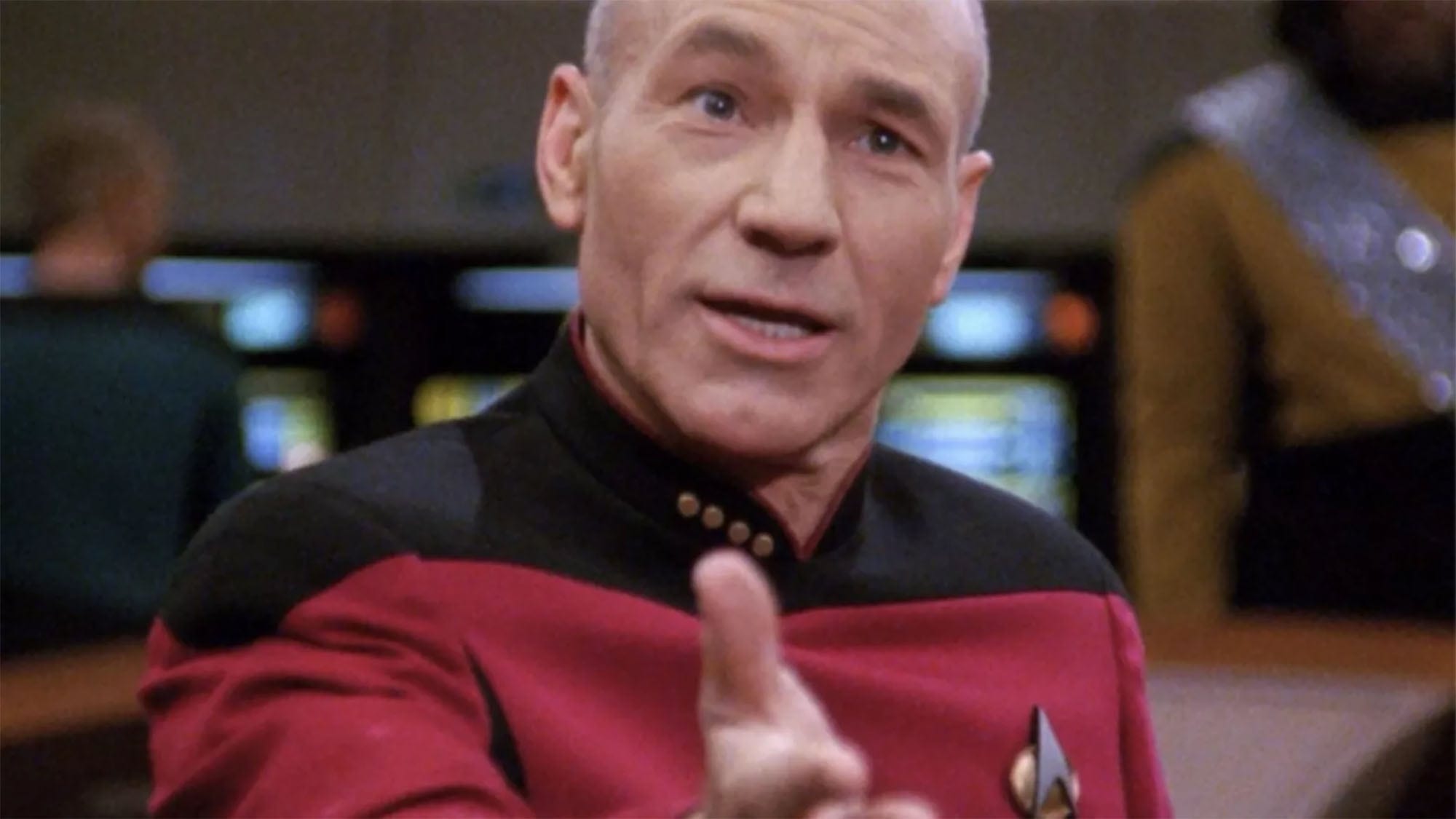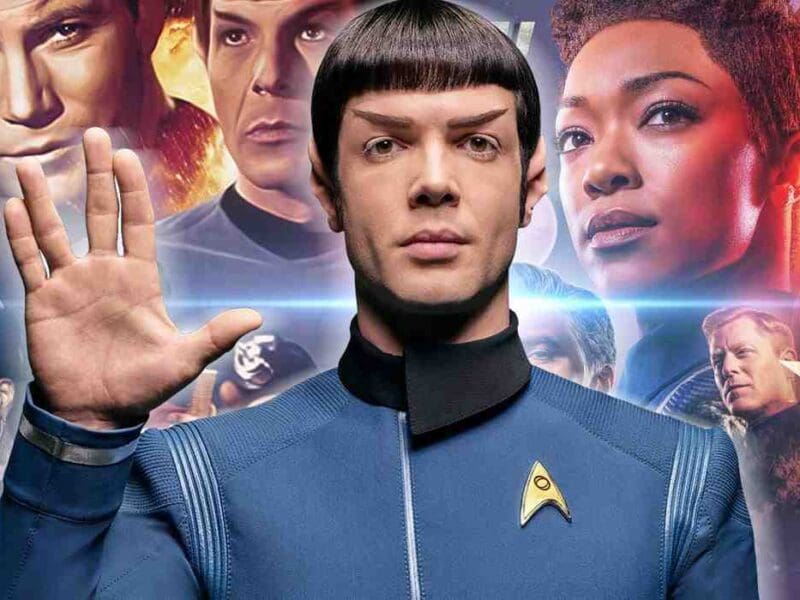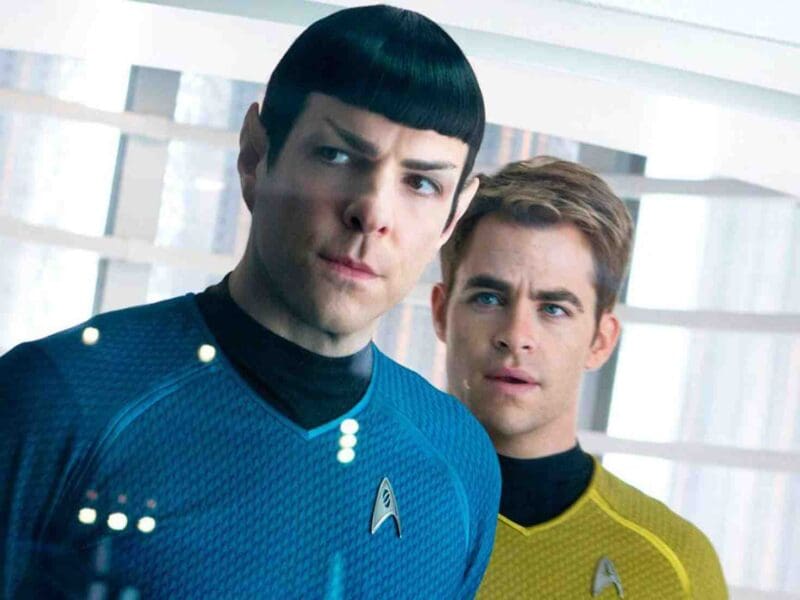
Why Captain Picard is still the most inspirational Starfleet leader
While we were initially excited at the news CBS is developing Star Trek spinoffs, one even involving Patrick Stewart reprising his role as Captain Jean-Luc Picard, our enthusiasm has considerably dampened in the wake of the dumpster fire known as Star Trek: Discovery, or colloquially by its detractors, ST:D.
We brewed up a fresh batch of steaming hot Earl Grey tea to brace us for the journey that is Star Trek: Picard – and we surely needed it. Showrunner Alex Kurtzman signed a five-year deal with CBS after Star Trek: Discovery expanding the franchise with new shows, miniseries, and even potential animation, and we couldn’t be more devastated about it.
We hope the Viacom-CBS merger fails so spectacularly that the conglomerate is forced to sell the Star Trek licenses to a more responsible party. *Cough* Seth MacFarlane *cough* . . .

Naturally, we adore Stewart, and also happen to think the character of Captain Picard in NextGen is one of the greatest leaders the Starfleet has ever seen. Fictional or not, he might even be one of the greatest leaders of anything (no offense to our editor-in-chief! Ahem.).
Brew up your own celebratory cup of steaming hot Earl Grey, because here are six times Picard proved he’s always been the most inspirational leader – one whose legacy we desperately hope isn’t demolished on screen 25 years after Star Trek: The Next Generation ended.

Fighting for the rights of sentient life: “The Measure of a Man” S2E9
Picard’s impeccable moral fiber is in fine form in this episode where he fights for Data’s (Brent Spiner) right for freedom and safety. The Federation wants to send androids out on dangerous missions to do all the potentially harmful and fatal grunt work that non-android life forms are apparently far too precious to do.
In a Starfleet legal hearing, Picard presents a convincing argument that highlights the sentience of androids, how they’re more than just property, and how forcing them to do perilous work amounts to a re-institution of slavery. Ya boy scores a win, Data’s rights are respected, and the rights of other sentient artificial intelligence are later recognized by Starfleet and the Federation thanks to his efforts.

Facing off with a Klingon military governor: “The Mind’s Eye” S4E24
Though Picard is more often than not a balanced, patient man with a sophisticated grasp of diplomacy in one hand and a hot cup of Earl Grey in the other, he also knows how to go the extra mile to get his point across when his usual demeanor isn’t doing the job. Being the smart, learned, and cultured man that he is, Picard apparently knows all the essential Klingon vernacular to bring out when a tense problem needs solving.
In this episode, Picard gives exactly zero fucks for the attitude exhibited by the Klingon military governor, delivering a stern ear full to him. How does Picard resolve this conflict? By getting right in the governor’s face and spitting a jagged Klingon obscenity at him. Picard knows his shit and as a result, the interaction appears to absolve the conflict. Earl Greys are on the house, boys!

Refusing to become Ahab: Star Trek: First Contact
It’s very rare that we ever see Picard completely losing his cool or looking in any way vulnerable, but thanks to his traumatic experiences with the Borg, that’s exactly what we see in Star Trek: First Contact. For one of the first times in his reign as Captain, we see him allowing his own personal feelings to interfere with his judgement.
Picard even puts his crew at risk to take vengeance against the Borg – something he vehemently denies when Lily Sloane (Alfre Woodard) calls him out for his bullshit in the ready room.
Picard fights Lily the whole way until she hits a nerve by dropping a Moby Dick reference and comparing him to Ahab hunting the white whale. His composure is clearly shaken and he soon realizes that Sloane is correct, proving him to be a leader who isn’t afraid to let go of his pride and admit to his own failings.

Leading by example and showing Wesley how to live: “The First Duty” S5E19
Ordinarily, fans and Enterprise crew alike would be delighted with precocious brat Wesley Crusher (Wil Wheaton) announcing that he doesn’t want to talk.
However, in this episode where he’s partly responsible for a cadet paying “the price” for his showboating, Picard won’t stand for his insolence and takes the opportunity to tell him some home truths about what the Federation and Starfleet stand for. Picard could have given the kid a royal tongue lashing, but instead he teaches Wesley how he should behave as a member of the team from now on. That’s some stellar patience he’s got going on.

Looking out for his crew and calling out for freedom: “The Drumhead” S4E21
In an episode exploring the insidious nature of McCarthyism, Picard challenges Starfleet Admiral Norah Satie for her ruthless and conspiratorial hunt to find a saboteur who caused a dilithium chamber hatch to explode on the U.S.S. Enterprise-D.
As usual, Picard maintains his sense of balance and cool when he takes to the stand against Satie, who has humiliated and harassed much of his crew over the mystery. He delivers an understated yet virulent speech about the hazards of paranoia and the pernicious dangers of diminishing people’s freedom under the conceit of maintaining “safety”.
It’s all kinds of powerful and it forces Satie to scuttle back into retirement where she belongs. As Picard tells Worf (Michael Dorn), “She or someone like her will always be with us, waiting for the right climate in which to flourish – spreading fear in the name of righteousness.” The message remains chilling and timely. Go off, Captain!

Refusing to let a bully win: “Chain of Command” S6E11
Madred (David Warner) tortures the hell out of Picard with the most infuriating gaslighting tactic possible, electrocuting the Starfleet Captain every time he correctly asserts he’s being shown four lights instead of five.
Being the phenomenal leader that he is, Captain Picard never totally gives in and instead skewers the Cardassian for being a pathetic bully who can’t even break him. The sequence is triumphant and inspiring and highlights the man’s formidable inner strength.







